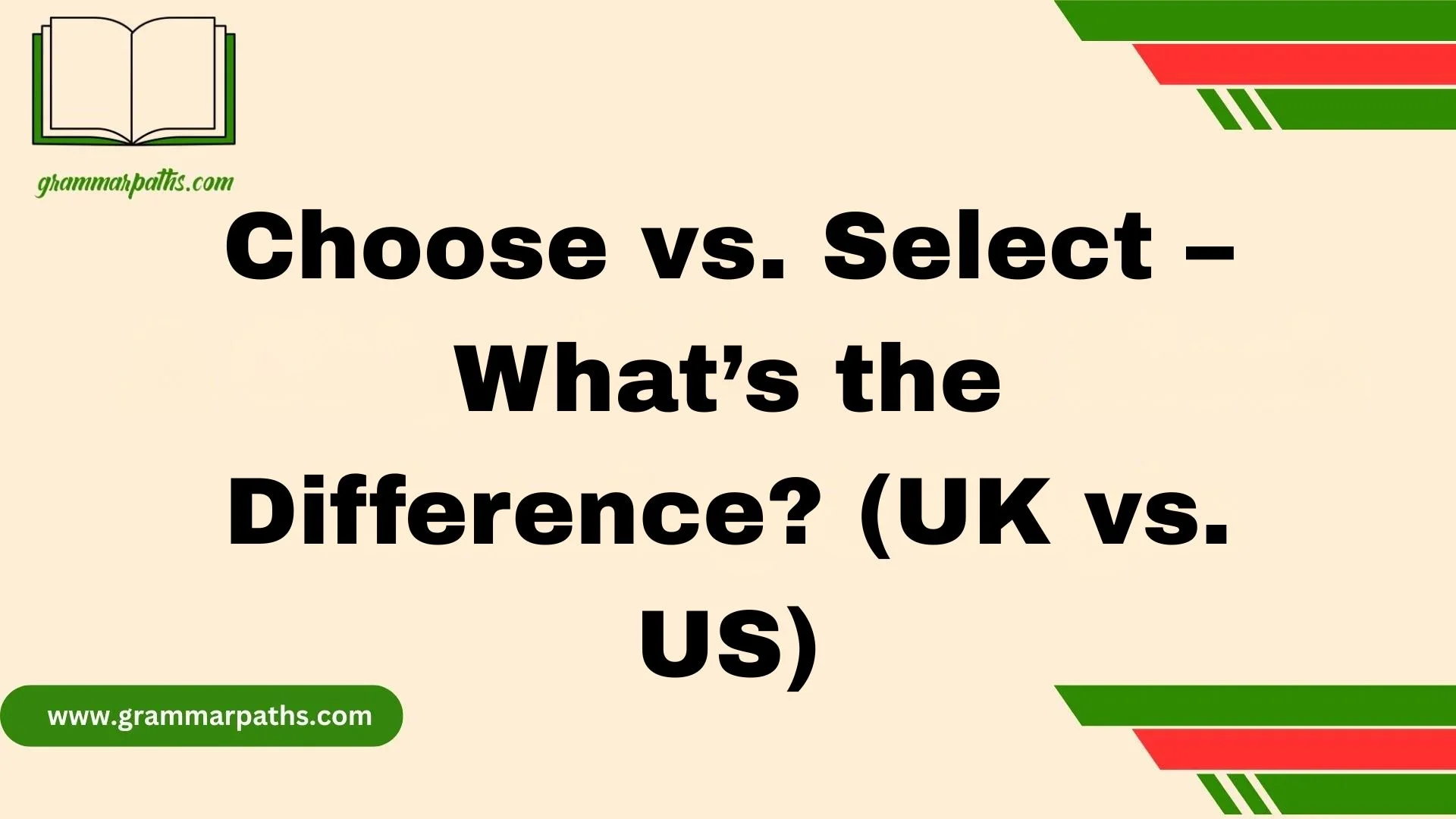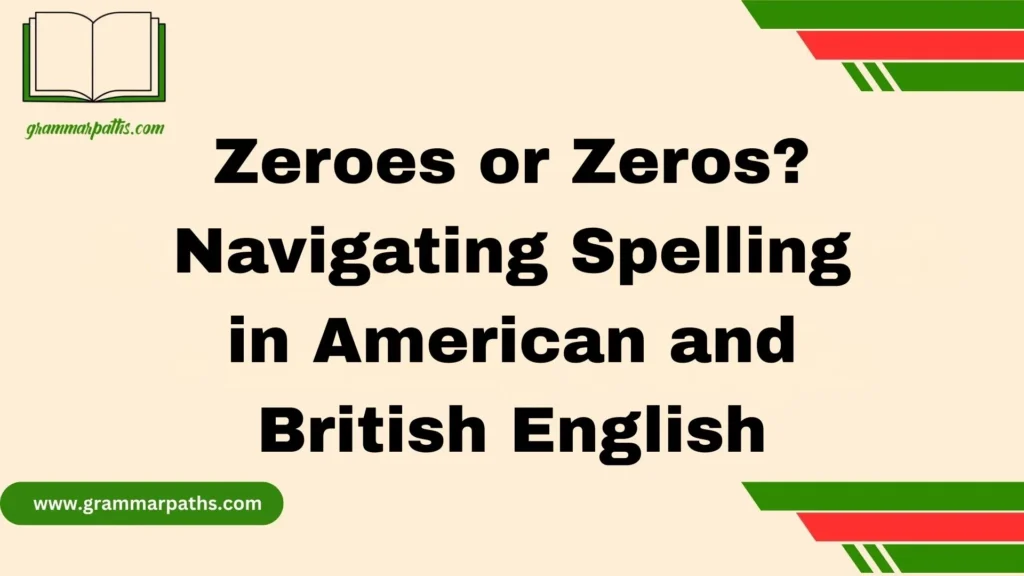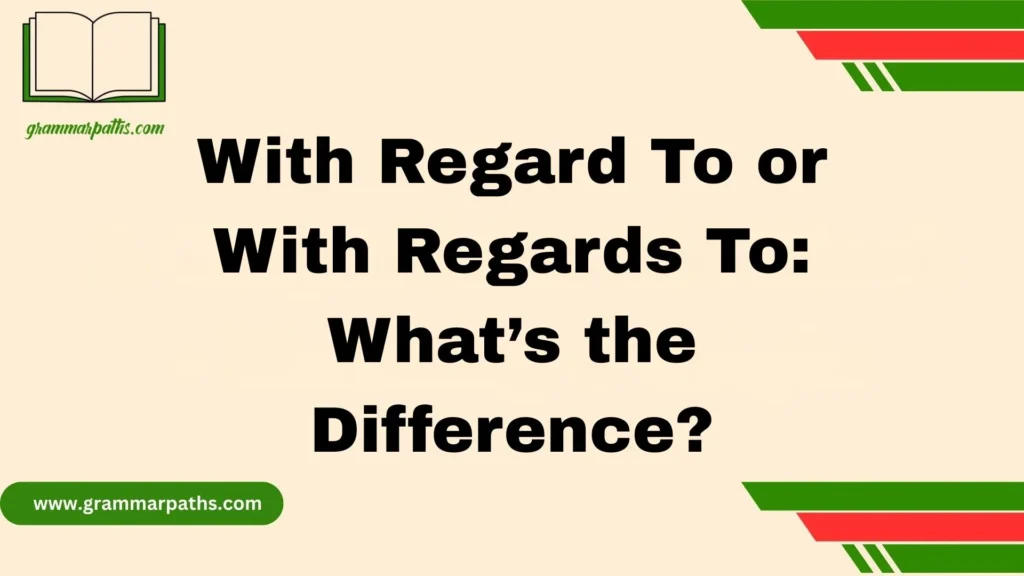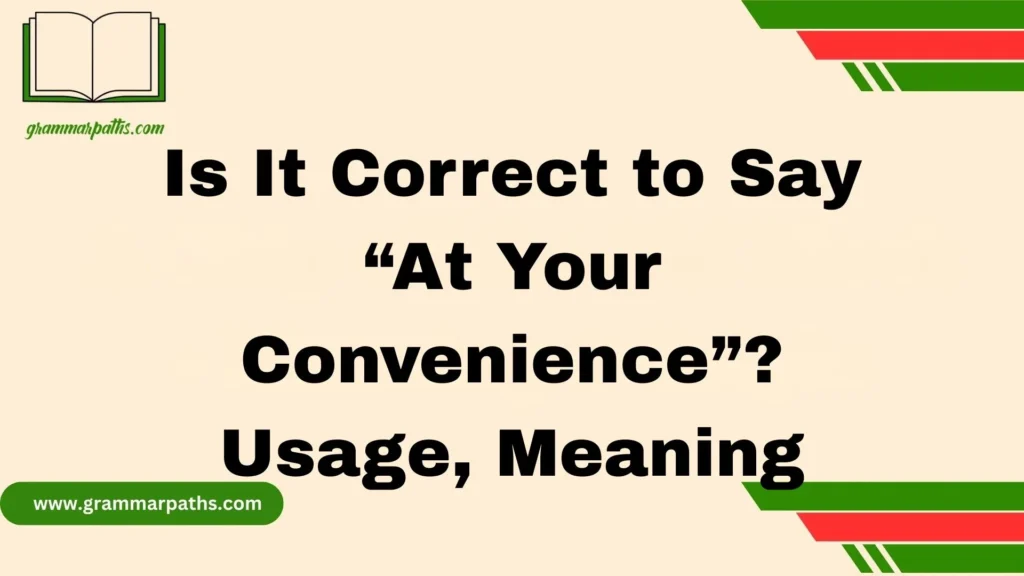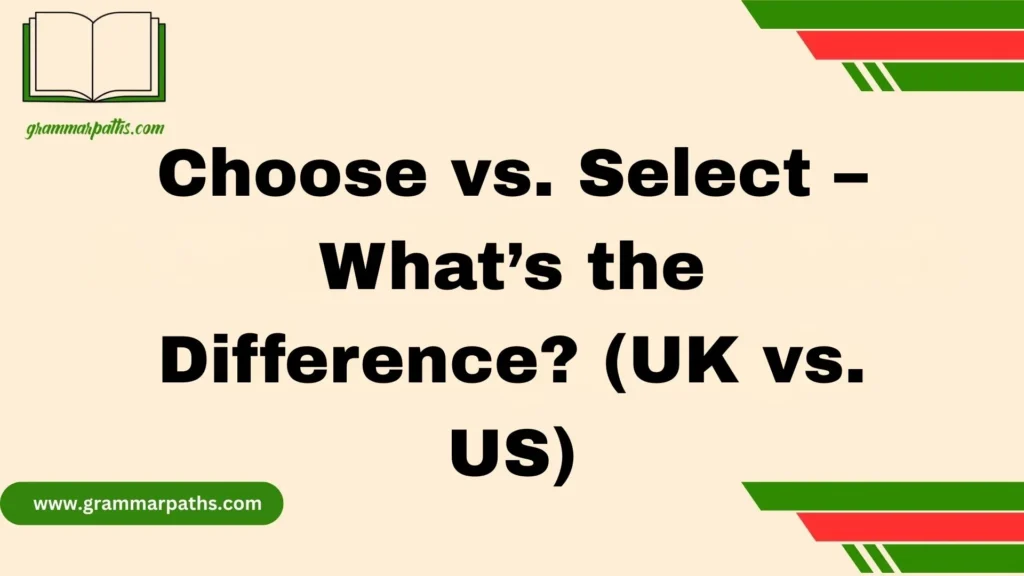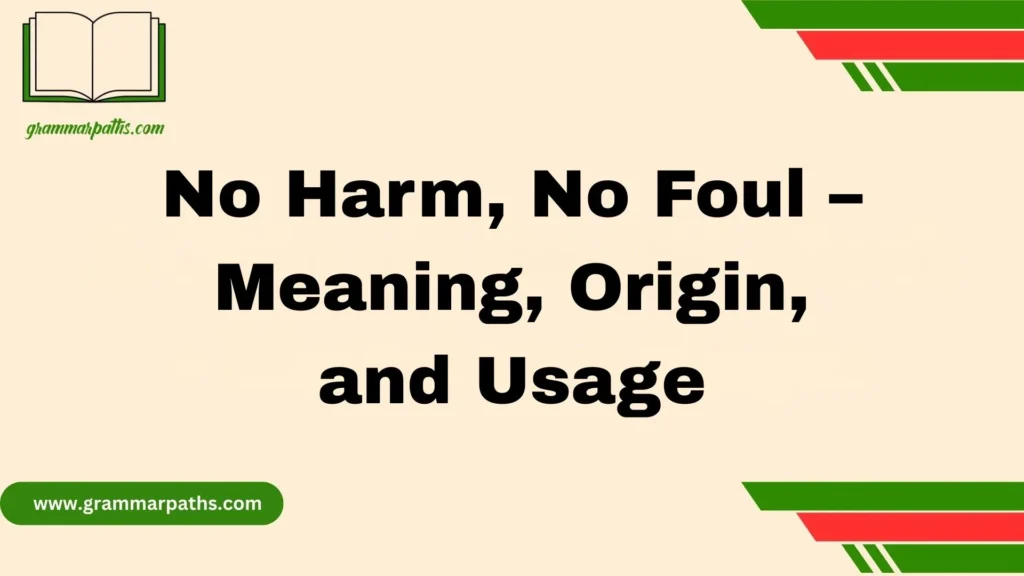When we talk about words like Choose and Select, people often think they have the same meaning, but they don’t always fit every situation. In daily life, I often have to decide between a range of possibilities, like which book to read or which coffee to order. I’ve noticed that when I want to sound casual, I usually choose, but if I want to sound more formal or show that I’m being careful with my decision, I prefer to say I select. In this way, both terms work interchangeably, but context changes their tone. Think of it as having multiple choices and picking one or more depending on how specific or thoughtful you want to sound.
I’ve also seen how language learners get commonly confused with these words, the same way they mix up affect and effect or even lose and loose. The rules for using Choose vs. Chose are a bit more straightforward, but many forget that chose is just the past form. When I explain this to students, I like to give real examples and explain the difference in a simple way: Choose is now, chose is then. Whether you’re in the UK or the US, this little detail makes your English sound much more natural and avoids misunderstandings.
Core Definitions and Origins
Definitions
- Choose: To pick from available options, often based on personal preference, feeling, or freedom.
- Select: To carefully or deliberately choose, often suggesting more thought, formality, or exclusivity.
Origins
- Choose comes from the Old English word ceosan, meaning “to decide, to prefer, to select.” It’s one of the oldest verbs in English and has always carried a broad, flexible sense.
- Select comes from the Latin seligere, meaning “to pick out.” It entered English later, through Middle French, and from the start carried a more formal, deliberate flavor.
Key difference: Choose developed as a natural, everyday English verb. Select arrived as a Latinate word, used in scholarly, legal, and formal contexts. This distinction still echoes in modern usage.
Nuanced Differences in Meaning
Even though both words overlap, their nuances set them apart.
- Choose: Personal, emotional, flexible. Example: “I chose pizza because it felt right.”
- Select: Formal, careful, precise. Example: “The jury was selected from qualified citizens.”
Here’s a comparison table:
| Aspect | Choose | Select |
| Tone | Casual, everyday | Formal, technical |
| Decision Process | Preference, instinct, freedom | Careful consideration, criteria |
| Common Settings | Conversations, personal writing | Forms, academic writing, tech menus |
| Emotional Weight | Suggests freedom of choice | Suggests structure or authority |
Think of it this way: if someone says “choose,” you picture a person picking based on what they want. If someone says “select,” you picture a process, list, or filter being applied.
Contextual Usage: Where One Works Better Than the Other
When “choose” fits best:
- Casual conversation: “I can’t choose between chocolate and vanilla.”
- Expressing freedom: “You’re free to choose your path.”
- Storytelling: “She chose love over wealth.”
When “select” is better:
- Formal writing: “Select three participants for the study.”
- Technology: “Select the file to upload.”
- Professional environments: “Only selected candidates will be interviewed.”
In academic papers, business reports, and government documents, “select” tends to dominate. In daily life, “choose” takes the lead.
Everyday Language in Action
Both words pair with certain phrases naturally.
Common Collocations:
- Choose: “choose wisely,” “choose sides,” “choose freely”
- Select: “pre-selected items,” “select a category,” “hand-selected”
Idiomatic Uses:
- “Choose wisely” often suggests long-term consequences.
- “A select few” highlights exclusivity or privilege.
You’d rarely hear someone say “select wisely” in casual talk—it would sound stiff.
Regional Variations: UK vs. US Usage
While both words are common in American and British English, their frequency and contexts differ slightly.
- United States:
- “Choose” is dominant in everyday conversation.
- “Select” shows up in tech, government, and corporate writing. Example: “Select your state from the list.”
- United Kingdom:
- “Choose” is equally popular in daily speech.
- “Select” is slightly more common in formal education and business. For instance, UK school applications often say “Select your subjects.”
Corpus data (based on 20th and 21st century trends):
| Region | Word Usage (Relative Frequency) | Example Contexts |
| US | Choose: 70% | Everyday talk, personal decisions |
| US | Select: 30% | Forms, legal docs, tech prompts |
| UK | Choose: 65% | General usage, speech |
| UK | Select: 35% | Schools, exams, formal business |
Data Insights: Google Ngram & Corpus Analysis
If you track usage through Google Ngram Viewer, both words have been popular for centuries, but with different peaks.
- Choose has remained consistently high since the 1800s, reflecting its role in common speech.
- Select rose in the 20th century with the growth of formal education, science, and computer interfaces.
In modern times, digital technology boosted “select.” When you use software, menus almost always say “Select an option,” not “Choose an option.”
This isn’t just random. Tech companies prefer “select” because it suggests precision—you click an exact button rather than casually “choose.”
Cultural & Psychological Influences on Preference
Language mirrors culture, and the way we use “choose” vs. “select” reveals cultural attitudes.
- In the United States, “choice” connects strongly to freedom, individuality, and democracy. Marketing often stresses this: “Choose your plan,” “Choose freedom,” “Choose life.”
- In the United Kingdom, “select” often conveys prestige, sophistication, or exclusivity. Ads might say: “Our select range of wines” or “Select membership benefits.”
Marketing Example:
- US ad: “Choose your adventure today.”
- UK ad: “A select collection of luxury items.”
In psychology, “choice” emphasizes autonomy, while “selection” suggests authority or criteria beyond the individual’s control.
Practical Communication Tips
How do you know when to use choose vs. select?
Quick Rules of Thumb:
- Talking casually? → Use choose.
- Writing formally? → Use select.
- Describing freedom or personal preference? → Choose.
- Referring to a list, menu, or process? → Select.
Common Mistakes:
- Using “select” in casual speech makes you sound robotic.
- Overusing “choose” in professional writing makes you sound too informal.
Think of it this way: choose = freedom, select = formality.
Case Studies & Real-Life Examples
Government Forms
- US passport form: “Choose your preferred contact method.”
- UK visa form: “Select the category that applies to you.”
Technology
- Microsoft Windows: “Select the file to open.”
- Apple iOS: “Choose your language.”
Notice how Apple, with its consumer-friendly branding, uses “choose,” while Microsoft leans toward “select” for precision.
Education
- US universities: “Choose your major.”
- UK universities: “Select your modules.”
Business Communication
- Job postings: “Selected candidates will be contacted.”
- Employee handbooks: “You may choose your benefits package.”
Conclusion
In short, understanding the small differences between Choose and Select helps you sound more natural in both UK and US English. While both share a similar meaning, the choice depends on whether you want a casual or more formal tone. Personally, I’ve found that paying attention to context—like when to decide between a range of possibilities or when making a more careful decision—makes communication clearer. Even though the rules for using them are pretty straightforward, learners often get commonly confused, just like with pairs such as affect/effect or lose/loose.
FAQs
Q1: Is “Choose” more common than “Select”?
Yes, Choose is often used in casual speech, while Select is more formal and precise.
Q2: How do I know when to use “Chose”?
Chose is simply the past tense of Choose, so use it when talking about something already done.
Q3: Do UK and US English use these words differently?
Not really—the distinction is the same in both. The variation lies more in style and tone than in grammar.
Q4: Why do people confuse them with other words?
Because English has many pairs of commonly confused words, such as affect/effect and lose/loose.
Q5: Can both be used interchangeably?
Yes, in many contexts they can, but be mindful: Select usually highlights being more careful with a decision, while Choose feels lighter and more casual.

Mia Rose is the passionate writer and founder of GrammarPaths.com, a resource dedicated to helping learners master English grammar, idioms, and writing skills with ease. With a deep love for language and years of experience in teaching and content creation, Mia simplifies complex grammar rules into clear, practical guides that readers can instantly apply.
